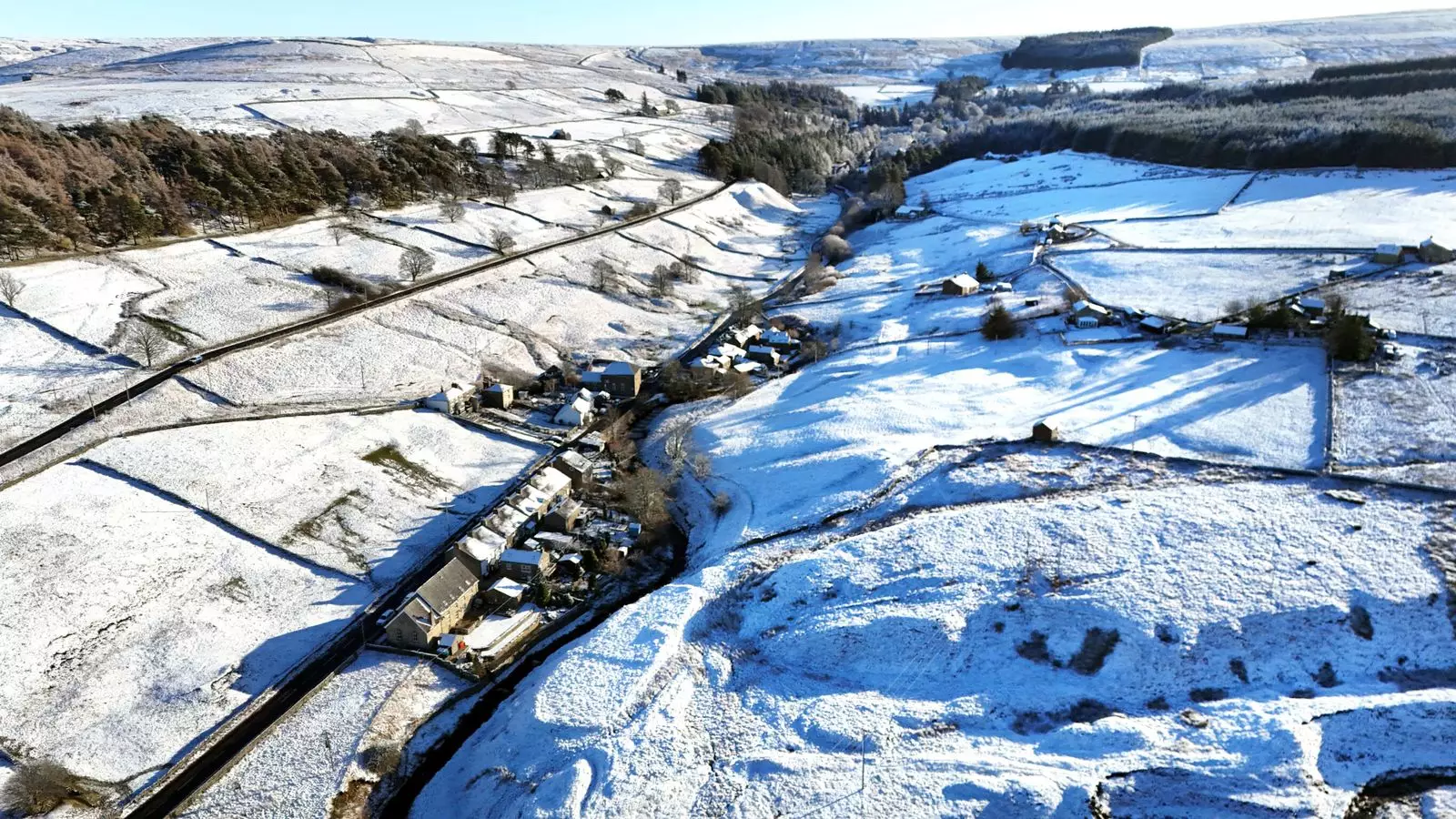As winter intensifies, the United Kingdom is bracing for a severe drop in temperatures, with forecasts suggesting lows plunging to a staggering minus 8°C in the coming days. In light of this, the UK Health Security Agency (UKHSA) has issued widespread cold weather health alerts across all of England. The alarming amber alerts, which began on Thursday at noon and will remain in effect until next Wednesday, suggest a notable increase in health risks, particularly for vulnerable populations such as the elderly and those with existing health conditions. This proactive measure serves to underline the ongoing urgency in addressing the cold’s implications for public health.
In the context of the forecast, it is essential to recognize that these chilling temperatures do not merely represent discomfort; they could lead to heightened mortality rates among at-risk groups. This cold snap takes on an added dimension as it affects not just individual health but also public health infrastructure. The NHS Black Country Integrated Care Board emphasizes moderation in outdoor activities during the cold, urging communities to take precautions to safeguard their health.
Geographical Variance in Temperature Trends
The forecast indicates notable geographical disparities in the severity of the cold. Parts of Wales and southern England are predicted to experience temperatures hovering between minus 4°C and 5°C on Thursday night, while northern England and Scotland brace for even frostier conditions. According to Met Office meteorologist Dan Stroud, the impending widespread frost will blanket the entire nation, from Land’s End in the southwest to John O’Groats in the northeast. This chilling forecast is a stark reminder of the typical winter weather that the UK can face, but it raises questions about how communities will adapt to these frigid conditions.
In addition to the current severe weather conditions, Stroud mentioned that while there may be brief relief with slightly warmer temperatures over the second half of the weekend, the cold is expected to return with a vengeance next week. The cyclical nature of this cold weather raises concerns regarding long-term preparedness, emphasizing the need for communities, local authorities, and the health services to craft plans that can be activated swiftly during such unforgiving temperatures.
In anticipation of the dangerous weather conditions, local authorities and health boards have begun implementing emergency protocols. In London, councils activated emergency accommodation services to assist the homeless population, ensuring that extra bedding is available to those sleeping rough during particularly brutal nights. Community responses like these are crucial in mitigating the adverse impacts of extreme weather and reflect a broader societal responsibility to protect the most vulnerable members of our communities.
Concurrently, individuals are urged to prepare for the freezing temperatures by taking necessary precautions, such as stocking up on essentials like food and medicine, as advised by the Wye Valley NHS Trust. Local governments and healthcare organizations are playing central roles in disseminating crucial information on how to navigate the impending cold snap safely.
Compounding the challenges posed by low temperatures, the Met Office has issued several warnings for snow and ice that are expected to complicate travel and daily life this weekend. The yellow warnings highlight the expected icy surfaces across northern and western Scotland, much of northern England, and Northern Ireland until Friday morning. By midday Saturday, these warnings will extend to cover all regions of England, with notable accumulations expected in the Midlands, parts of Wales, and northern England.
According to forecasts, some regions could see significant snowfall, with estimates of around 5 cm of snow across much of the Midlands, alongside possible accumulations of up to 30 cm over higher elevations in Wales and the Pennines. The combination of heavy snowfall and strong winds raises the risk of snow drifts in vulnerable areas, complicating travel routes and creating further public safety concerns.
As the UK faces a potentially dangerous cold snap ahead, it’s vital for everyone to remain vigilant and informed. With associated health risks and travel complications looming large, community readiness and resilience will be put to the test. The weather prompts a collective call to action, reminding us all of the importance of preparedness in the face of a natural phenomenon that many may take for granted. Engaging with those around us, particularly those in need, will be imperative as the bitter temperatures invade our lives, compelling us to extend care and support to ensure that no one is left behind in the chilling wake of winter.


Leave a Reply